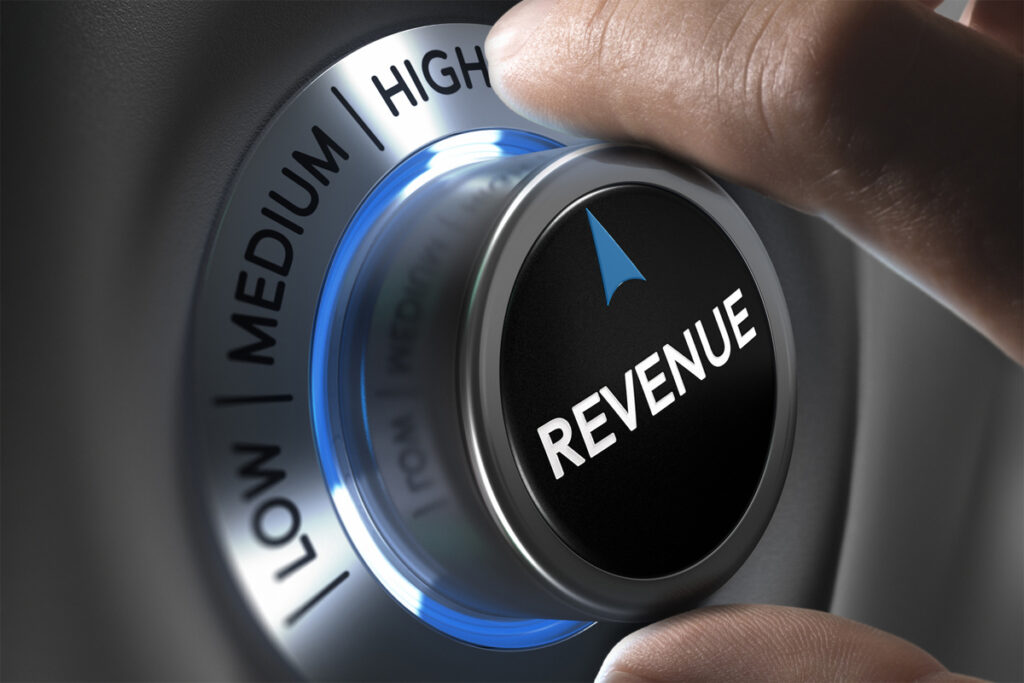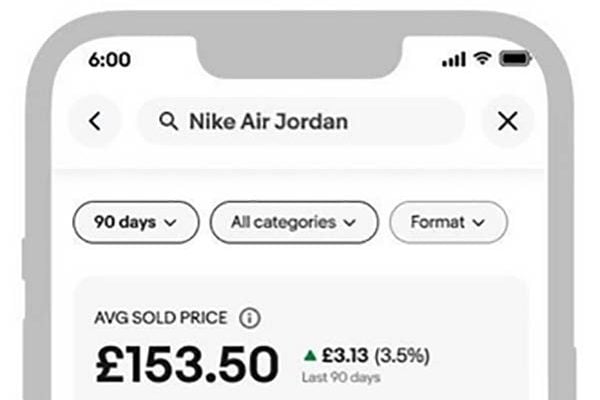With UK ecommerce leading Europe in terms of growth – and much of that coming via Amazon and at the expense of the High Street – plans by the UK government to try and revive the self-same High Street by taxing online retailers is perplexing.
According to the European B2C Ecommerce Report 2018, the UK leads the way in European ecommerce, growing to €178 billion spent in 2017 – a third of it on Amazon.
This is against a backdrop of overall European ecommerce, which grew by 11% to €534 billion in 2017, and is expected to grow still faster this year to hit €602 billion by year end.
On the ecommerce front, UK retail is doing almost as well as the England squad.
But the parlous state of High Street sales can’t be ignored. Once proud chains are closing left, right and centre, and many independent stores simply can’t compete. Clearly, action needs to be taken and it should fall to government to some extent to help make this work.
However, the plans outlined late last week by Chancellor Phillip Hammond stating that “Progress is being made with a way to tax digital business” should strike fear into etailer’s hearts.
Hammond was writing to MP Nicky Morgan at the end of June in her capacity as chair of the treasury committee, in answer to her letter expressing the committee’s concerns with the financial burden of business rates and asking whether he believes that business rates are still fit for purpose.
While Hammond sees business rates based on property as an effective way to tax real-world retailers, he is also looking at how to tax the digital economy. In a statement, Hammond said: “I have been clear that we need to find a better way of taxing the digital economy, and we are making progress on this issue. At Autumn Budget 2017 we published a position paper on corporate tax and the digital economy, with a further update at Spring Statement. Those set out the government’s view that international corporate tax principles need updating for the digital age to ensure they reflect the new ways businesses create value. It is right we make further progress on this issue before considering the implications for the wider tax system, including business rates, so that all businesses make a fair contribution to the public finances.”
However, this has caused the inevitable headlines that an ‘Amazon Tax’ will be used to subsidise the High Street and that is bad for business – all business.
Ivan Mazour, chief executive of technology firm Ometria, puts it really well: “After all its talk of bolstering the UK’s digital economy, the government’s proposed ’digital tax’ on online retail is a perplexing one, certainly. Punishing forward-thinking retailers for offering customers convenient ways of shopping in an increasingly digital world flies in the face of innovation – and only serves to prop up a status quo in bricks and mortar retail that isn’t resonating with customers like it used to, if recent cuts and closures are anything to go by.”
Mazour is bang on. Instead of dragging UK online retail back into the dark ages, the onus should be on the high street to match the innovation we’ve witnessed online. In the same way that successful online retailers are putting amazing customer experiences at the centre of everything they do, the high street must re-think its proposition to shoppers – innovative retailers like Made.com and Dyson who use retail space to offer curated brand experiences understand this and are thriving.
As I have said before, the problem with UK High Street retail isn’t that digital has some unfair advantage, it is that the High Street retail experience is awful. Online – especially using marketplaces – it is easy to find what you want, at a good price and to get it delivered within, in some cases, less than 24 hours. Go to a shop and you get poor service, queues, lack of stock, expensive car-parking, crowds and, for me, it is a sub-standard experience that I avoid as much as I can. I get my groceries delivered, I pretty much buy everything online and, if I do go to a shop, its usually a convenience store when I stop for petrol and fancy bag a minstrels.
I can’t see any amount of ‘digital tax’ stopping me doing this. I don’t go online for bargains – though many do – I go for convenience and now that that is my modus operandi I can’t see me changing.
What retailers need to do is look closely at why they are failing: not how much business online is taking from them, but why that is happening. And then they need to fix it. Sure, business rates are too high and that does need to be addressed, but trying to tax online into submission to let the High Street carry on as is is a myopic approach and once again show just how out of touch with real life politicians of any stripe are.








10 Responses
All the government will do is keep the taxes.
They promise it will go into high streets, but I don’t really believe them.
Sugar tax. It wont go into helping fat kids exercise.
Dartford crossing will be free when it’s paid off. (NOPE)
The list goes on and on.
high streets need to adapt retail as the main offering has had it , social and entertainment is their future
or charity shop outlet villages
All over the western world tax revenue is in swift retreat, so expect “Plastic Tax”, “Sugar Tax”, “Garden Tax”, “NHS Tax”, “Graduate Tax”, “Internet Tax”, “Carbon Tax” (and others) – all linked to virtuous causes.
if the idea is “…so that all businesses make a fair contribution to the public finances…” then they need to replace business rates with a fixed low percentage tax based on turnover. This would have to apply to all businesses, whether they are one man bands working from home, SMEs that qualify for rates relief, or giant multinationals.
It would help reduce the tax burden high street, encourage small businesses to take the risk of expanding into larger premises, and get a better contribution from the multinationals who can shift profits into other divisions of their company overseas to reduce UK taxes.
why not have a 5% surchage/tax on all online purchases. This is fed back in to reduced rates for bricks and mortar companies. would raise another £9bn pounds on current sales and mean the large titans who shirk their corporation tax responsibilities would still be contributing something to have access to the ever growing UK digital economy.
As a caveat, if a customer orders the items online for collection in store rather than delivery then the surcharge is waived. This may drive more footfall onto the high street. Consumers collect their orders and may well browse in store, or pick up a coffee from a local independent coffee shop, or browse other stores in the locality.
As a small independent retailer with a small online ecommerce prescence we try to differentiate by offering great customer service levels in store, often spending an inordinate amount of time with a customer to make sure the product they are purhasing is correct; only to find at the end “its cheaper online, can you price match”. We often do match to avoid losing a sale, but the large companies buying power mean they have much greater margins to play with then many SME’s. The costs of trying to rank high on search engines, is prohibitively expensive for the vast majority of businesses and the first 2 or 3 pages are dominated by the large companies regardless of how “good your content is” or however hard you try to align with googles ever changing algorithms.
It’s difficult to compete as a SME and invest in better customer service, when we have been on the back foot for the last 6 years with the coming of amazon and other major backed online retailers. We are constantly having to cut costs to try to keep in business, to stressed and tired to look at the bigger picture and adapt. I have massive frustration with business rates, especially when you consider it is in place to pay the infrastructure, which is as far as I can see being used constantly by vans delivering online products! The bricks and mortar slice of the retail pie is substantially smaller than 10 years ago, so in my opinion so should our contribution to business rates. I agree that retail is changing dramatically, but instead of the rate of decline being steep, why not make it more gradual. Remember we are talking about people’s jobs and lifes works. I’d rather pay an extra 5%, 10%, 20% a year tax on my profits and not to have to pay business rates, mind you I would say that I don’t make any profit, but interestingly if I didn’t pay business rates I’d be making around £80,000 profit per year, to me that doesn’t seem right.
The premise of this story is rather unconvincing – that taxing the profits of online e-tailers somehow drags Britain back to the dark ages . Paying your fair share of tax doesn’t cause de-evolution and it wouldn’t be ‘punishing’ firms like Amazon – just closing loopholes that allow them to avoid fair taxation. I doubt very much that a bit of tax would prevent their R&D or service offer development – the incentives for that remain. The other major flaw above is that the author doesn’t seem to have a good understanding of the role and value of high streets in communities and in society- accusing those propounding such a tax of myopia, while demonstrating hyperopia by failing to see what’s right in front of him. If online buying is a key factor in the decline of high street retail (which it is), and those online retailers are not being treated equitably (which they aren’t) then a flawed approach to taxation is aiding the demise of high streets and damaging the social, cultural and economic fabric of communities. Reform business taxation – yes – but everyone needs to pay what’s due for the society we want to live in.